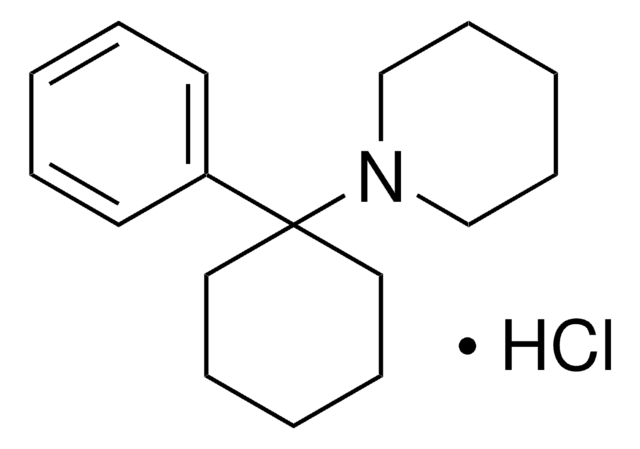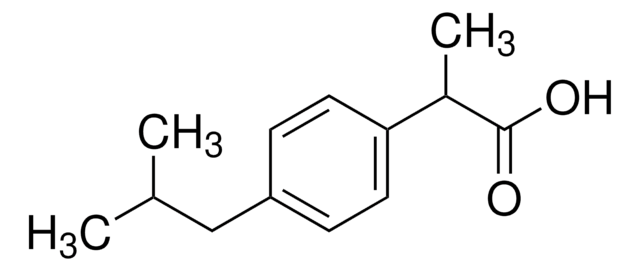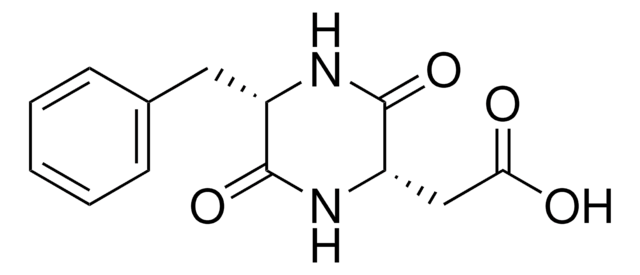1716002
USP
Retinyl acetate
United States Pharmacopeia (USP) Reference Standard, solution of retinyl acetate (vitamin A) in peanut oil
Synonym(s):
Retinyl acetate solution, Vitamin A acetate solution
About This Item
Recommended Products
grade
pharmaceutical primary standard
API family
retinyl compounds
form
solution
manufacturer/tradename
USP
application(s)
pharmaceutical (small molecule)
format
single component solution
storage temp.
2-8°C
InChI
1S/C22H32O2/c1-17(9-7-10-18(2)14-16-24-20(4)23)12-13-21-19(3)11-8-15-22(21,5)6/h7,9-10,12-14H,8,11,15-16H2,1-6H3/b10-7+,13-12+,17-9+,18-14+
InChI key
QGNJRVVDBSJHIZ-QHLGVNSISA-N
Looking for similar products? Visit Product Comparison Guide
General description
Application
- Oil- and Water-Soluble Vitamins Capsules
- Oil- and Water-Soluble Vitamins Oral Solution
- Oil- and Water-Soluble Vitamins Tablets
- Oil- and Water-Soluble Vitamins with Minerals Capsules
- Oil- and Water-Soluble Vitamins with Minerals Chewable Gels
- Oil- and Water-Soluble Vitamins with Minerals Oral Solution
- Oil- and Water-Soluble Vitamins with Minerals Tablets
Analysis Note
Other Notes
related product
Signal Word
Danger
Hazard Statements
Precautionary Statements
Hazard Classifications
Aquatic Chronic 4 - Repr. 1B
Storage Class Code
6.1C - Combustible acute toxic Cat.3 / toxic compounds or compounds which causing chronic effects
WGK
WGK 2
Flash Point(F)
Not applicable
Flash Point(C)
Not applicable
Choose from one of the most recent versions:
Certificates of Analysis (COA)
Sorry, we don't have COAs for this product available online at this time.
If you need assistance, please contact Customer Support.
Already Own This Product?
Find documentation for the products that you have recently purchased in the Document Library.
Customers Also Viewed
Our team of scientists has experience in all areas of research including Life Science, Material Science, Chemical Synthesis, Chromatography, Analytical and many others.
Contact Technical Service








